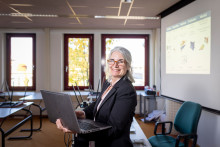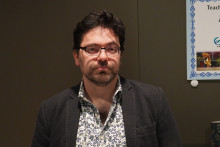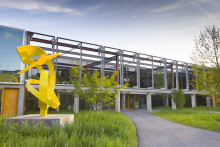‘We were approached by an Iraqi WHO representative last year. He was following the ITC MOOC course on Geo-Health and suggested that ITC could help WHO to prepare for situation in Mosul after the city would be liberated,’ explains Ellen-Wien Augustijn, one of ITC researchers involved in the collaboration with WHO. ‘We were therefore asked to identify the best locations for field hospitals serving local refugees.’
‘They anticipated that the frontline in Mosul would be very dynamic, meaning that the most suitable locations for hospitals would be changing based on the current situation,’ continues Sherif Amer, another ITC scientist who has been working on the project. ‘Our task was then to prepare several scenarios and identify the best hospital locations in those specific scenarios. We were also asked to identify which hospitals would be the most suitable for patients with various injuries, how much patients could each facility accommodate and so on.’
Mosul has very recently been liberated by the Iraqi forces. The liberation is in fact so recent, it is too soon to know if the results of the ITC research were accurate and used for the benefit of the local people. ‘I believe our contacts in Mosul are currently too preoccupied with other issues, but we hope an evaluation of the project will follow later and that the cooperation will continue,’ says Amer. ‘This research project also nicely shows that the tools ITC has can be applied during various emergency and humanitarian crises.’
‘The collaboration has been very difficult,’ mentions Augustijn. ‘The content of the project has been highly confidential and we naturally needed to communicate with people from the armed forces who, given the situation, often couldn’t attend our meetings. Yet, we hope the collaboration will go on, so we can help them improve local situation and procedures regarding health.’
You can read more about ITC's work and this project in the recently published ITC Special.







